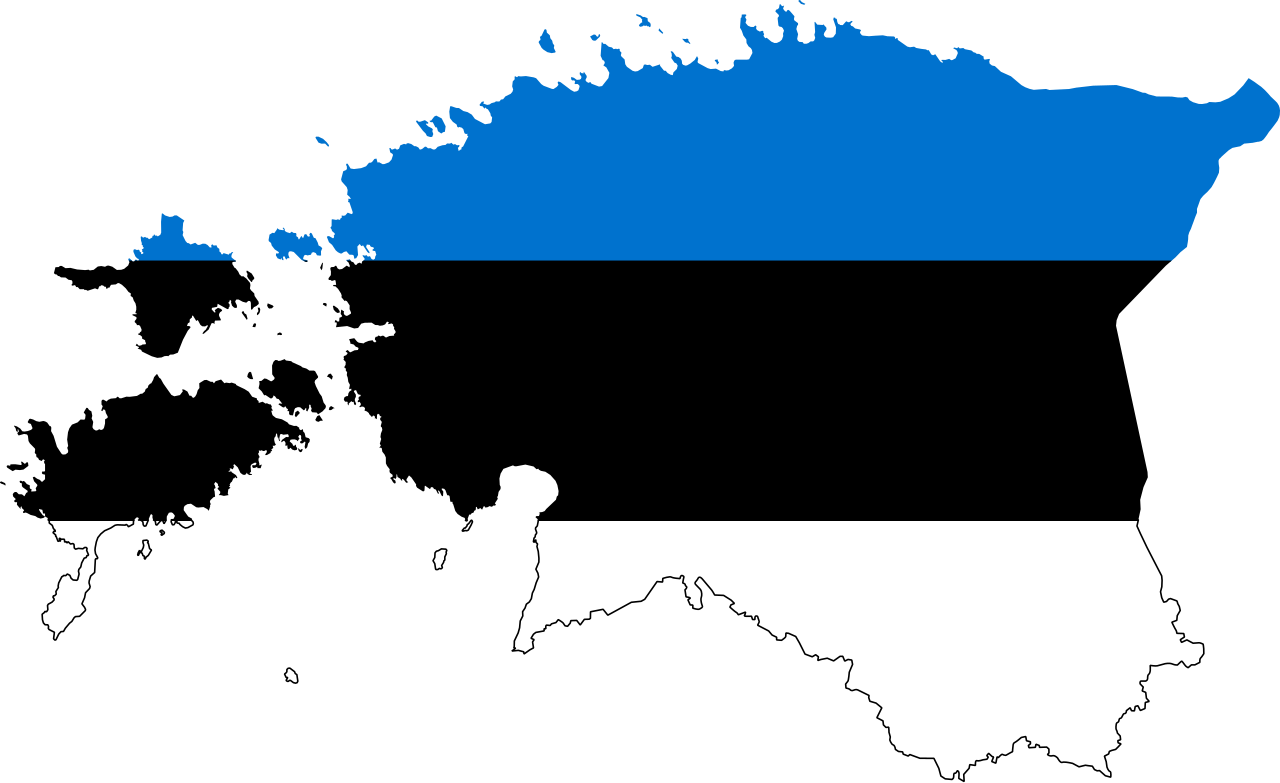Company Incorporation in Estonia

Company incorporation in Estonia has become a strategic choice for entrepreneurs seeking efficiency, flexibility, and access to the European market.
With a fully digital process and supportive legal environment, Estonia makes it easy to launch and manage a business from anywhere in the world.
From its innovative e-Residency program to a 0% corporate tax on reinvested profits, Estonia offers a compelling proposition for modern, borderless businesses.
It's not just about registering a company, it's about joining a forward-thinking ecosystem built for global growth.
What does incorporating a company in Estonia involve?
Incorporating a company in Estonia involves selecting a legal entity, preparing the required documentation, and registering with the Estonian Business Register.
Thanks to the e-Residency program, this entire process can be completed remotely and fully online.
Founders must decide on a company structure, typically a private limited company (OÜ), appoint a director, and define the share capital. Most businesses are up and running within a few hours after submission.
Why Estonia stands out as a business destination
Estonia stands out for its fully digital, transparent, and entrepreneur-friendly environment. The country has created a seamless infrastructure that enables business owners to launch and operate globally without borders.
With low administrative barriers, attractive taxation, and legal stability, Estonia appeals to founders seeking efficiency, scalability, and access to the European single market.
A short overview of Estonia as a business destination
Estonia is a member of the European Union, the Eurozone, and the Schengen Area. It offers a modern legal framework, competitive costs, and a government that actively supports entrepreneurship and innovation.
The business environment is especially attractive to startups, tech firms, and service-based companies aiming for cross-border operations.
Estonia’s digital leadership and business ecosystem
Estonia is a global pioneer in digital governance. Over 98% of public services are accessible online, including company registration, tax filings, and contract signing.
This enables businesses to scale efficiently and manage operations remotely.
The local ecosystem is enriched by tech incubators, venture capital networks, and a strong culture of innovation. Estonia has produced multiple unicorns, reinforcing its global reputation as a startup hub.
Economic outlook and international partnerships
Estonia maintains a stable economy with low public debt, sound governance, and a pro-business regulatory approach. Its digital infrastructure and openness to innovation attract foreign investors and global entrepreneurs.
Through EU membership and bilateral agreements, Estonia offers companies unrestricted access to European markets, along with growing connections across Asia and North America.
6 advantages of registering a company in Estonia
1. 100% online company formation with e-Residency
Estonia enables entrepreneurs to form a company entirely online, without being physically present. Through the e-Residency program, founders can digitally sign documents, access public services, and manage their company from anywhere in the world.
This makes Estonia especially attractive for remote-first and international businesses.
2. 0% corporate tax on retained and reinvested earnings
One of Estonia’s biggest draws is its unique corporate tax policy. Companies are not taxed on profits that are retained or reinvested into the business.
The 20% corporate tax only applies when dividends are distributed, offering significant cash flow advantages and encouraging sustainable business growth.
3. Full access to the EU single market
By incorporating in Estonia, your company becomes an EU-registered business, giving you unrestricted access to the European single market.
This means you can trade, invoice, and operate across all 27 EU countries, reaching over 400 million potential customers without additional trade barriers.
4. Advanced digital infrastructure and automation
Estonia is widely recognized as one of the most digitally advanced nations in the world. With 98% of public services available online, you can handle everything from tax submissions to company reports via secure platforms.
This level of automation significantly reduces administrative burden and operating costs.
5. Minimal bureaucracy and efficient public services
The Estonian government has streamlined the business environment to reduce complexity. Most procedures, from incorporation to annual reporting, can be completed quickly thanks to automated systems and transparent processes.
This results in faster setup times and fewer compliance headaches.
6. Active startup ecosystem with global recognition
Estonia punches above its weight in innovation, boasting successful startups like Bolt, Wise, and Veriff. The country offers access to accelerators, funding programs, and tech talent, making it an ideal base for high-growth ventures.
Its reputation as a startup-friendly ecosystem continues to attract global founders looking for scalability and support.
6 disadvantages of registering a company in Estonia
1. Banking access can be difficult for non-residents
Although company formation is digital, opening a traditional Estonian business bank account can be a hurdle for non-residents. Some banks require a physical visit or local references to comply with anti-money laundering regulations.
This can create delays or force founders to rely on fintech solutions instead.
2. Limited domestic market size
Estonia’s population of just over 1.3 million people means its internal market is relatively small. If your business model relies on local consumer demand, you may face limited growth opportunities compared to larger European countries.
Most Estonian companies are structured for international operations.
3. Strong digital literacy required for e-Residency
The Estonian system assumes users are comfortable with digital platforms, secure logins, and online compliance tools. If you're unfamiliar with managing official processes digitally, the learning curve can be steep.
Digital fluency is essential to operate smoothly within Estonia's e-governance framework.
4. Tax residency rules can be complex
While Estonia offers a favorable tax regime, understanding cross-border tax obligations is crucial. If your company’s management or operations are based elsewhere, tax residency may shift to another jurisdiction.
Consulting an international tax advisor can help avoid unintended double taxation.
5. Physical presence may be required for some sectors
Despite Estonia’s digital model, certain regulated industries, such as financial services or manufacturing, may still require a local office, licenses, or inspections.
Before registering, it’s important to confirm whether your business falls under any sector-specific regulations that limit remote operation.
6. Legal documentation often only available in Estonian
Although many digital services are offered in English, key legal documents and official records are frequently published only in Estonian. This can create challenges in interpretation and compliance.
Most foreign founders rely on translation services or legal advisors to navigate these requirements confidently.
The Estonian banking system
Opening a bank account as a non-resident
Opening a traditional business bank account in Estonia can be challenging for non-residents. Many banks require a physical presence or a local connection, which may not align with the fully digital company formation process.
Entrepreneurs often need to plan ahead and consider alternative options.
Fintech and online alternatives (e.g., Wise, Payoneer)
To overcome traditional banking barriers, many Estonian companies use fintech solutions like Wise, Payoneer, or Revolut Business.
These platforms offer multi-currency accounts, fast transfers, and integration with accounting tools, making them a reliable choice for remote entrepreneurs.
Anti-money laundering (AML) and KYC compliance
Estonia has strict AML and Know Your Customer (KYC) regulations, especially for international founders.
Businesses must provide thorough documentation and transparent ownership structures, as part of the country’s commitment to financial integrity and compliance.
Compliance, accounting, and taxes
Corporate tax structure and distribution taxation
Estonia applies a unique corporate tax model: 0% corporate tax on undistributed profits.
Tax is only payable when dividends are distributed, allowing businesses to reinvest earnings tax-free and grow more efficiently.
VAT registration and reporting obligations
Companies must register for VAT if their annual turnover exceeds €40,000 or if they provide certain services across the EU.
Estonia’s VAT reporting system is streamlined, but it requires timely filing and detailed documentation.
Digital accounting platforms and automation
Estonia’s ecosystem supports full integration with cloud-based accounting systems.
Platforms like Xolo, Envoice, and Merit Aktiva simplify invoicing, payroll, tax declarations, and financial reports, aligning with the country's digital-first approach.
Annual reports and transparency requirements
All Estonian companies are required to submit annual financial reports to the Commercial Register.
These reports must follow local accounting standards and ensure full transparency, reinforcing trust and accountability in the international business environment.
Visas and immigration considerations
Who qualifies for e-Residency and what it allows
e-Residency is open to individuals worldwide, regardless of nationality or current location.
It allows entrepreneurs to establish and manage an Estonian company remotely, access EU business services, and sign documents digitally.
Options for physical relocation or business visas
e-Residency does not grant physical residency, tax residency, or entry rights to Estonia or the EU.
For those planning to relocate, separate visas or residence permits are required, such as a startup visa, business visa, or digital nomad visa.
Director and shareholder residency requirements
Estonia does not require company directors or shareholders to be Estonian residents.
Your management team can operate from abroad, making the system ideal for location-independent businesses and global founders.
Estimated time to register a company
e-Residency application timeline
Applying for e-Residency usually takes 3 to 8 weeks, depending on your location and the verification process. Once approved, you’ll receive a digital ID card to access Estonia’s secure online systems.
Full digital incorporation steps and duration
With e-Residency, company registration can be completed online in a few hours.
The process involves selecting a business name, submitting founding documents, and registering with the Estonian Commercial Register, all through a secure digital platform.
Business culture and local practices
Communication and work culture in Estonia
Estonians value clear, concise, and direct communication. Meetings tend to be efficient and focused on results, with little room for small talk. Punctuality and professionalism are expected at all times.
Business meetings, hierarchy, and professional norms
While workplace hierarchies exist, Estonian business culture favors flat structures and open dialogue. Decisions are often made collaboratively, and expertise is respected over titles or formalities.
Digital-first mindset and trust in systems
Estonia operates with a strong digital-first mentality, where trust in online platforms is the norm.
Entrepreneurs are expected to be self-reliant, tech-savvy, and comfortable using secure digital tools for daily operations.
Care About Us
Where Learning Begin
Building a strong sense of community in Greenville school
Community - Building Approaches

Our ekit SCHOOL courses
What do you want to learn today?

Your Complete Guide to Photography

Learn Python – Interactive Python

Introduction to Edu_Learn LMS Plugin

Your Complete Guide to Photography

Learn Python – Interactive Python

Introduction to Edu_Learn LMS Plugin
Restaurant
Bring Innovation to Your Company
Let’s start the journey towards success and enhance revenue for your business. Take your company to the next level.
Wealth Management
Right people together made to challenge established thinking and drive transform
Restructuring
Right people together made to challenge established thinking and drive transform
How C2Z Advisory can help you launch in Estonia
Personalized support for e-Residents and remote founders
C2Z Advisory provides tailored guidance for entrepreneurs leveraging e-Residency, helping you navigate the legal, administrative, and strategic aspects of launching your company in Estonia.
End-to-end legal, tax, and operational guidance
From company formation to tax planning, compliance, and banking, our team offers full-scope support.
We simplify the business incorporation process in Estonia and ensure your setup is smooth, efficient, and globally scalable.
Frequently
Asked Questions
Yes. Estonia is one of the few countries in the world that allows you to create and manage a business entirely online, thanks to its pioneering e-Residency program.
You can register your private company, sign legal documents, submit taxes, and even manage accounting without ever setting foot in the country.
All essential services are accessible through secure, government-backed digital platforms.
No. Residency is not required to establish or operate an Estonian company.
With e-Residency, anyone around the world can start a business in Estonia and benefit from the European legal framework.
However, it’s important to note that e-Residency does not provide physical residency, citizenship, or tax residency status in Estonia.
The application fee typically ranges from €100 to €120, depending on the location of the pickup point you select.
Once submitted, the process generally takes 3 to 8 weeks, including background checks and card issuance.
After approval, you receive a digital ID card, which gives you access to Estonia’s secure e-services.
Yes, but with a specific condition. Estonian companies enjoy 0% corporate income tax on retained and reinvested profits, meaning you can grow your business without immediate tax obligations.
The 20% tax applies only when distributing dividends.
This deferred taxation model is designed to incentivize reinvestment and long-term business development.
It’s possible, but it depends on the institution. Traditional Estonian banks often require a physical presence, especially for compliance and KYC (Know Your Customer) reasons.
However, many entrepreneurs use fintech alternatives such as Wise, Payoneer, or Revolut Business, which offer remote setup and excellent support for cross-border operations.
All Estonian companies are required to file annual financial reports with the Business Register. If registered for VAT, they must also submit monthly or quarterly VAT returns.
Fortunately, most of these tasks can be completed through digital accounting platforms, ensuring compliance is efficient, automated, and transparent.
Professional accounting support is recommended to ensure accuracy.
